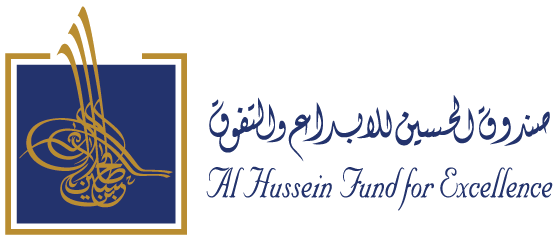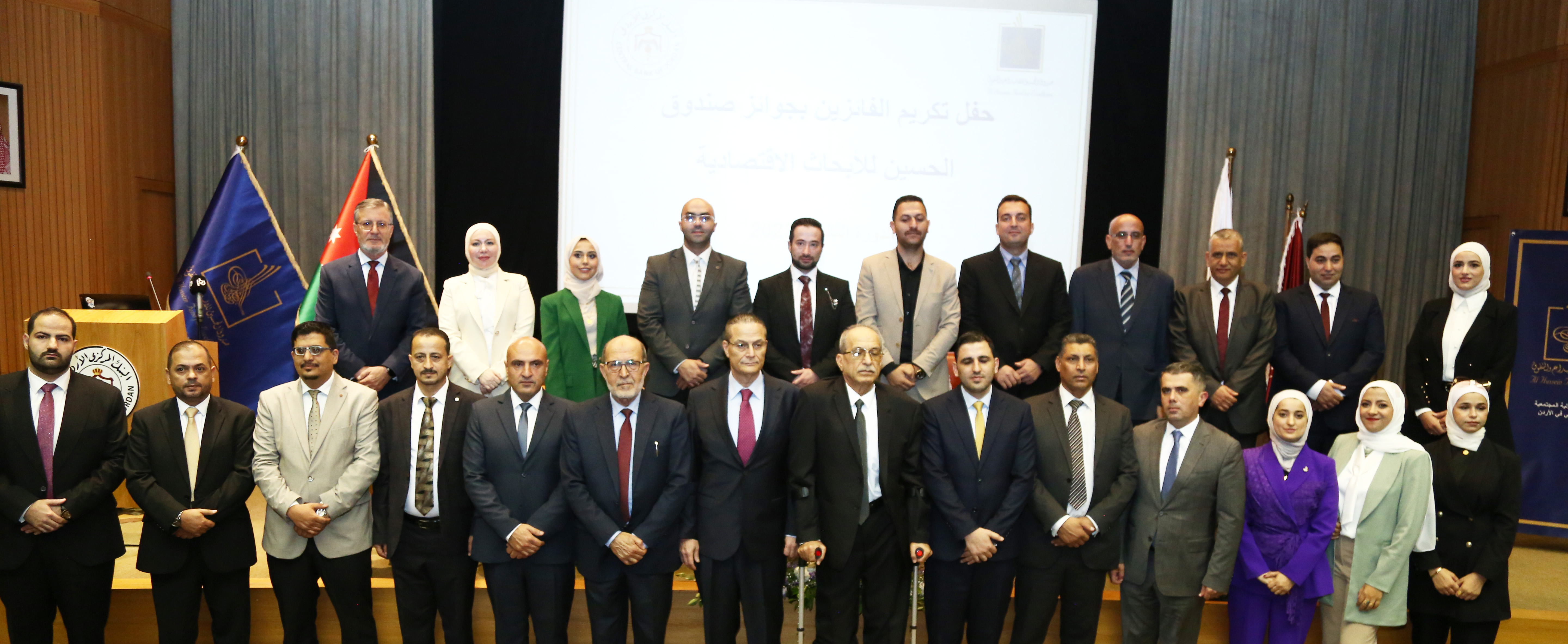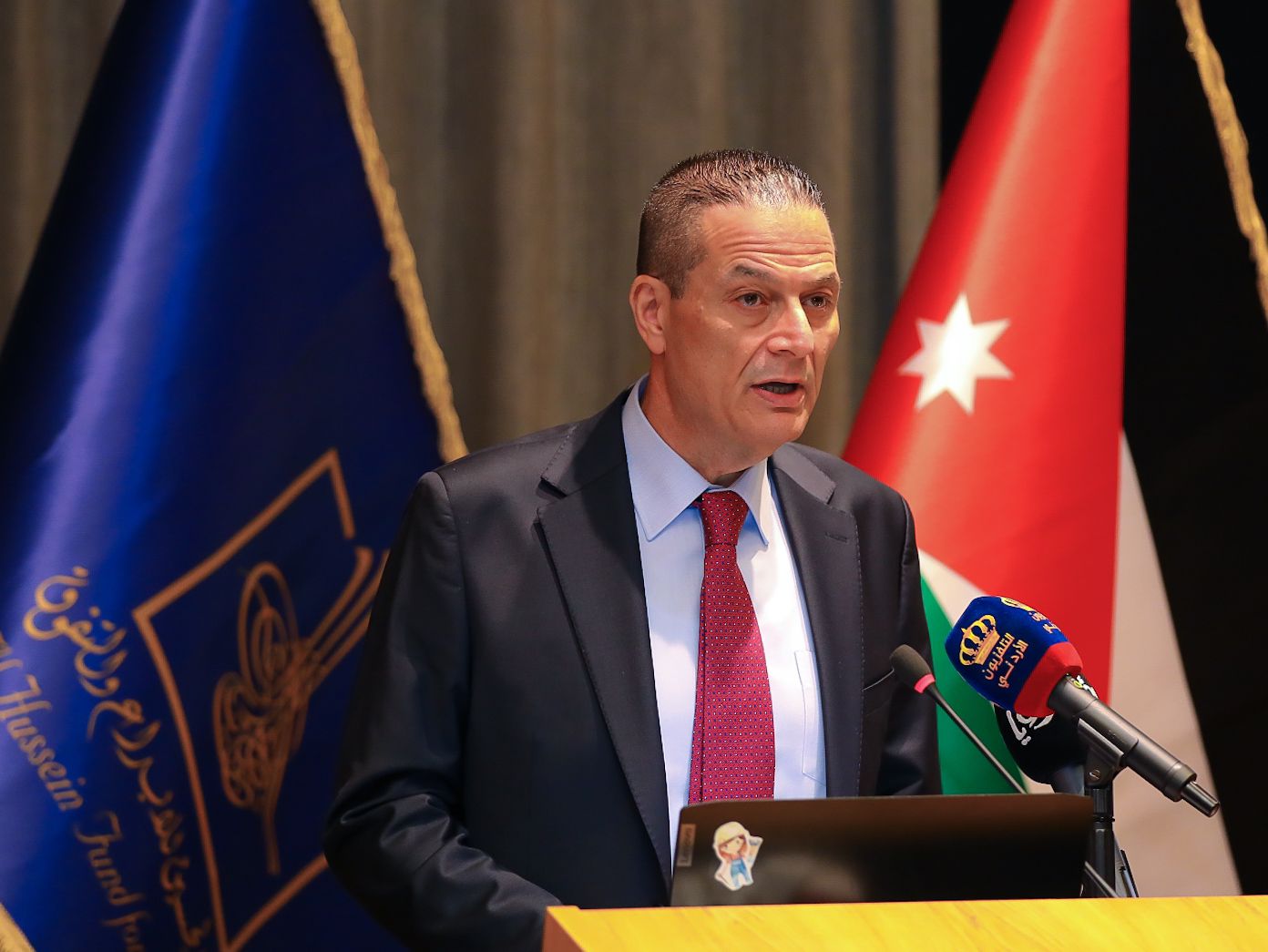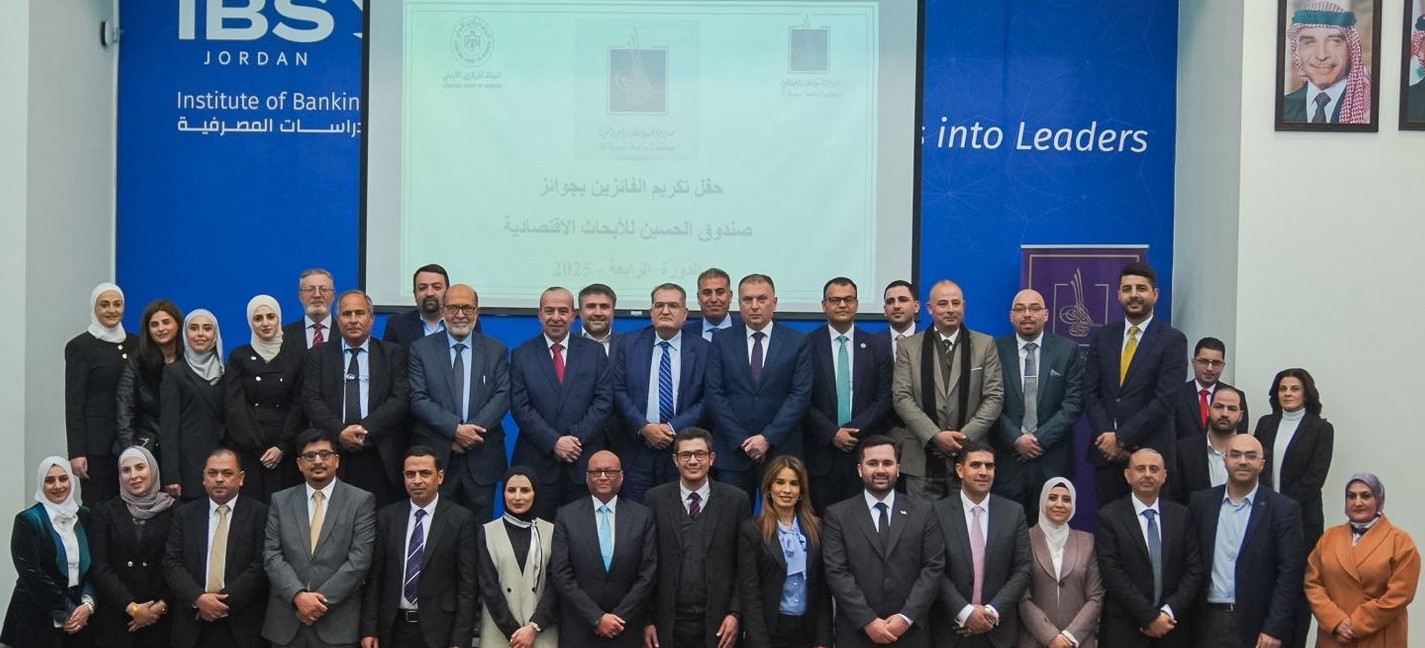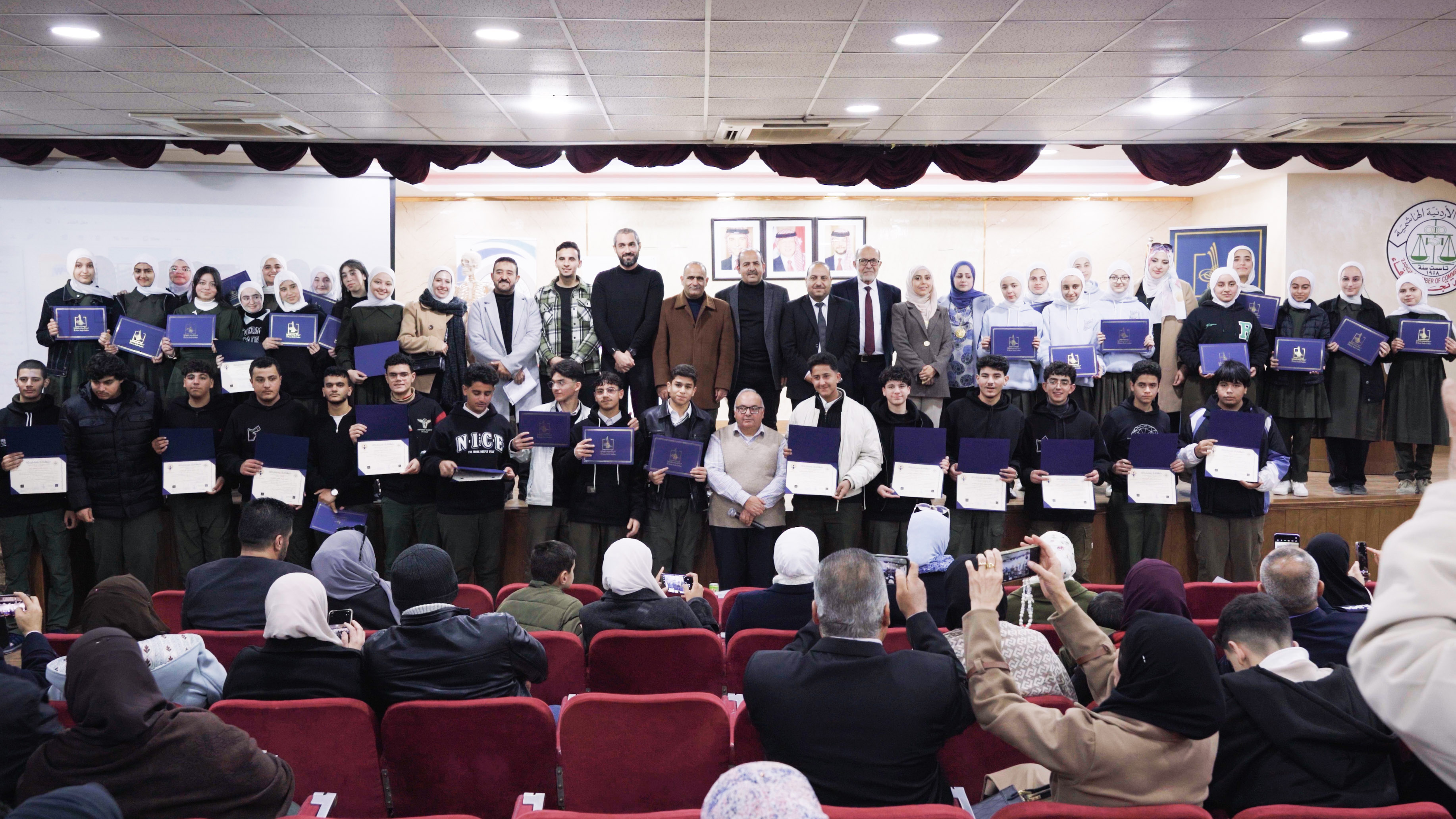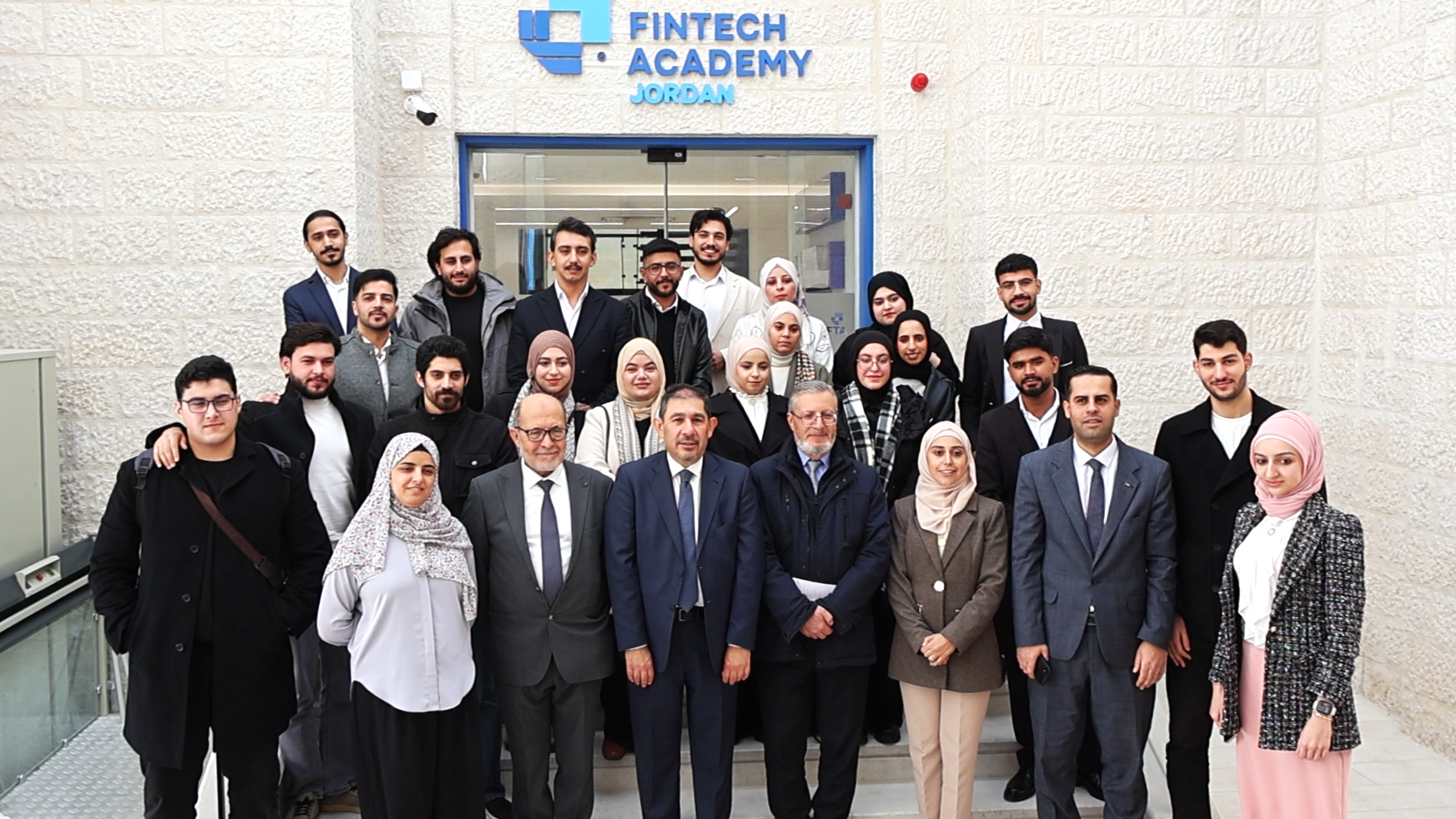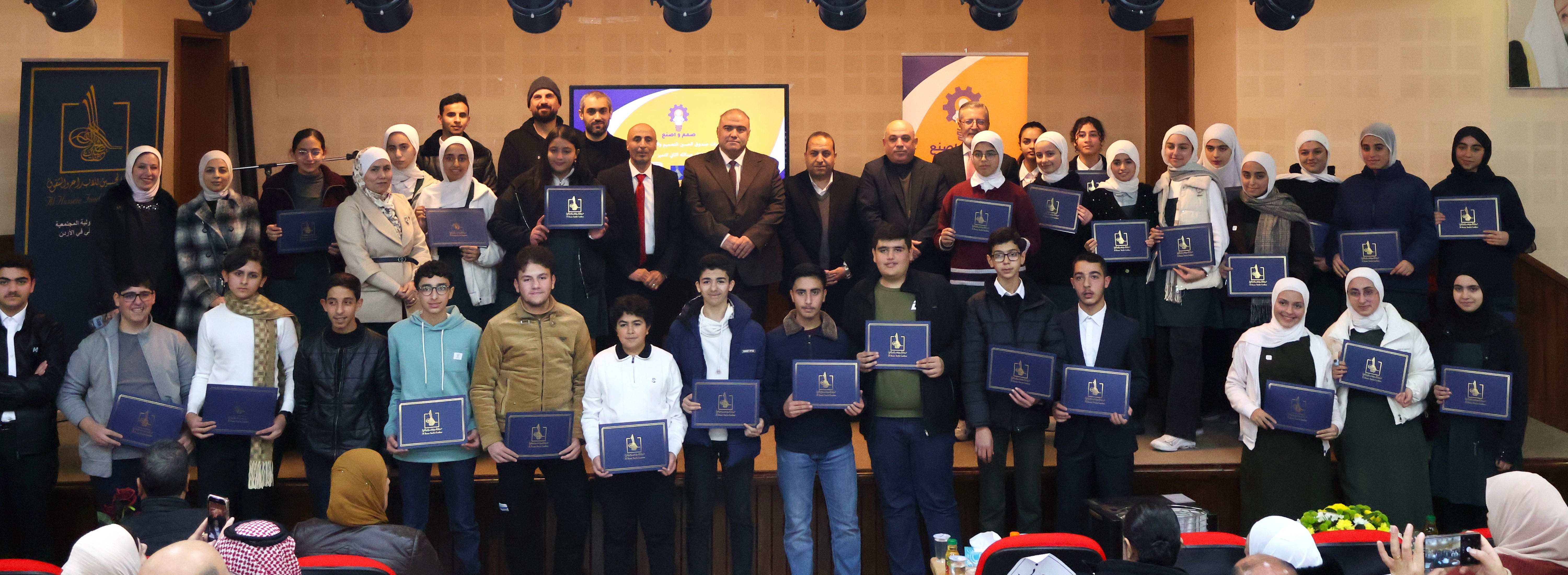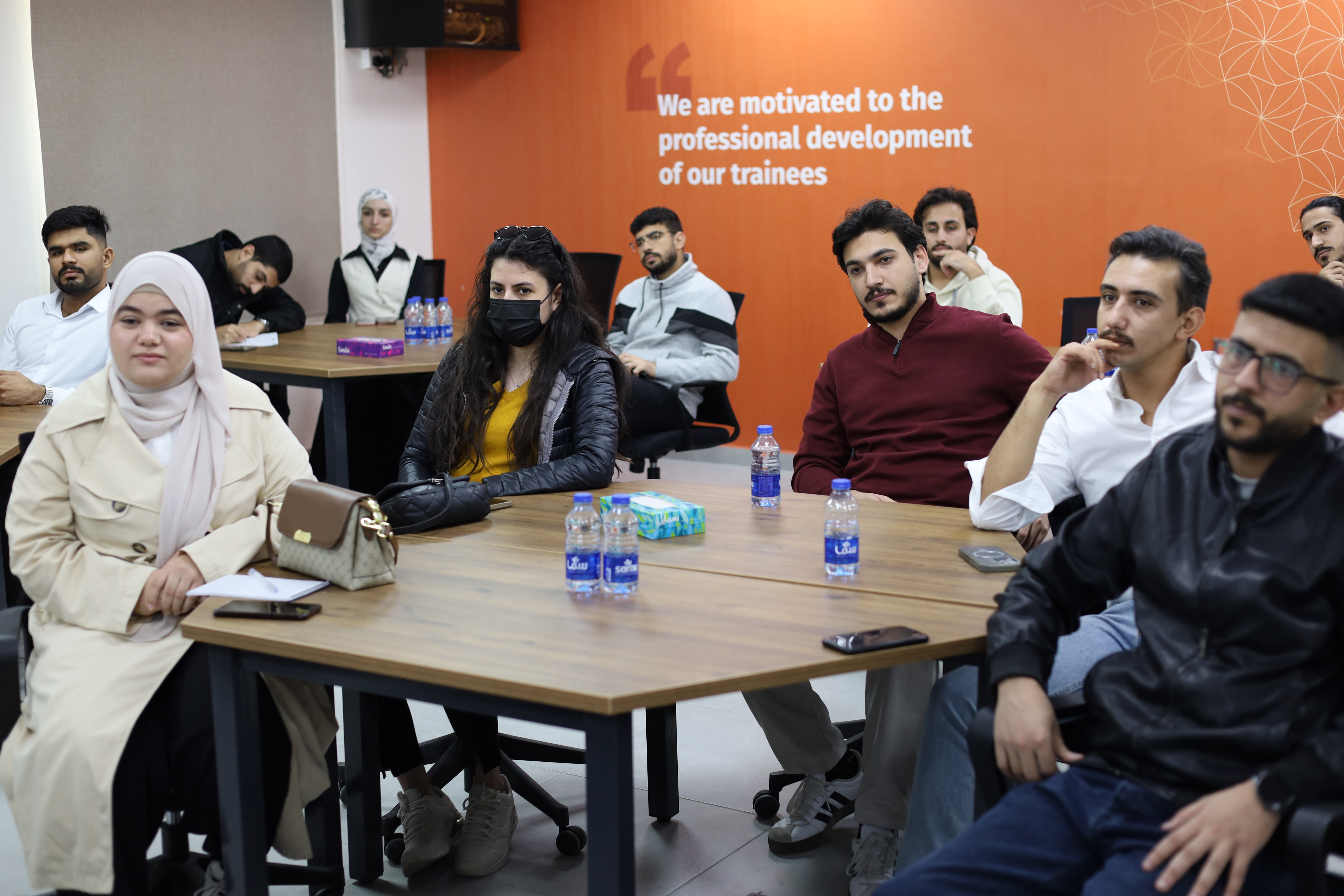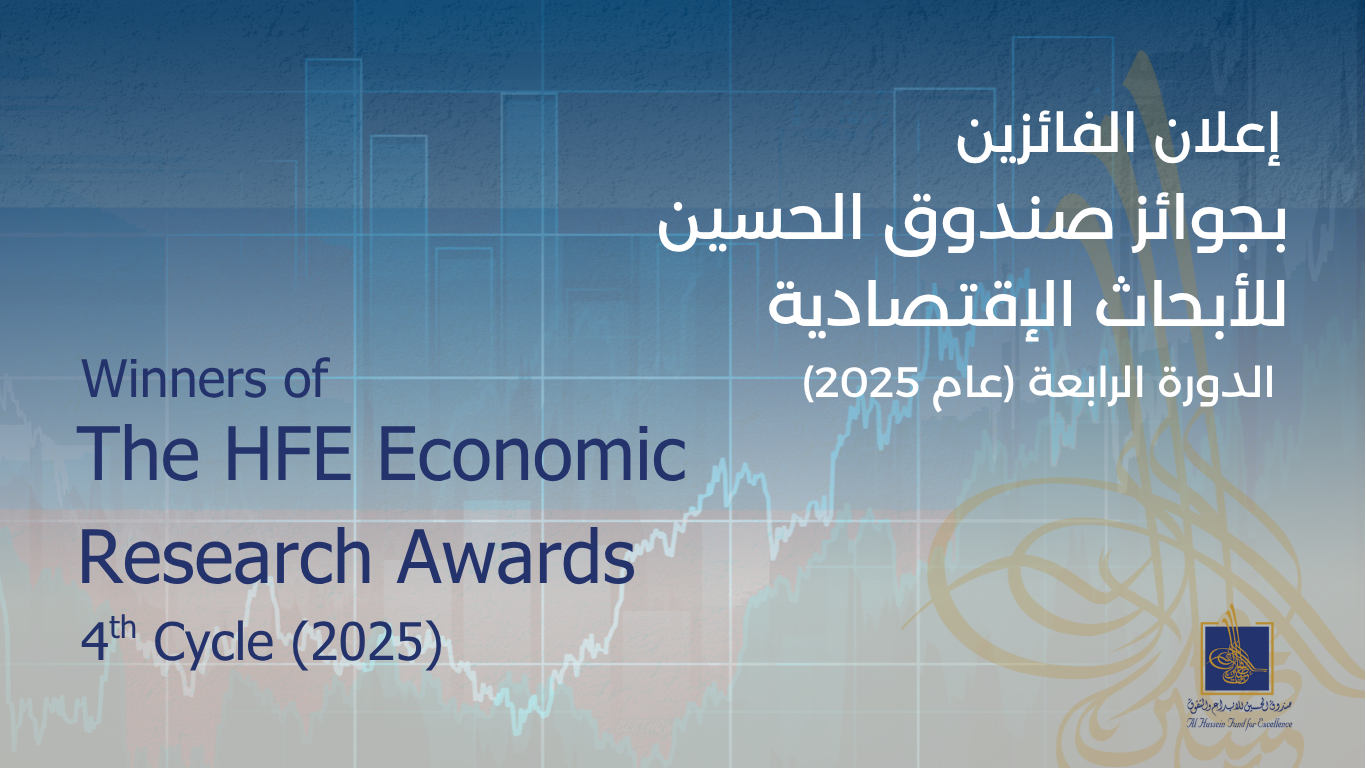On Wednesday, the Governor of the Central Bank of Jordan, Chairman of the Board of Directors of Al Hussein Fund for Excellence, H.E. Dr. Adel Sharkas, sponsored the ceremony honoring the winners of the third cycle of Al Hussein Fund for Economic Research Awards. The event was attended by several banking and academic leaders.
Dr. Sharkas stated that al Hussein Fund for Economic Research Award has, as always, demonstrated originality and objectivity in selecting the award fields. This is rooted in our firm belief that science and knowledge are the fundamental pillars upon which nations are built. Scientific research contributes to guiding knowledge towards development and leadership on various levels and finding effective solutions to the challenges facing our society.
He added that the fields chosen for this cycle address issues with the greatest impact on the national economy, which requires a deep understanding of their dynamics. Monetary policy has consistently been at the forefront of all economic discussions due to the unprecedented conditions faced by the global economy over the past two years.
Dr. Sharkas confirmed that the monetary policy of the Central Bank of Jordan, amid challenges such as inflation and rising interest rates, has achieved its primary goal of maintaining monetary and financial stability. "We will not hesitate to make any decision necessary to preserve our gains in this field."
Regarding the award topics, he noted that selecting topics such as green economy, digital economy, and financial technology aligns with financial and technological developments. It reflects the importance of adopting green finance initiatives, which are no longer just a modern trend but a real commitment to preserving our environment and achieving sustainable development.
H.E reiterated that supporting technology and innovation in the financial and banking sectors is a central goal. Financial technology has become a fundamental pillar in building more efficient and flexible financial systems. He noted that all these topics are central to the economic modernization vision for the Kingdom 2023 - 2033.
Dr. Sharkas mentioned that the award has contributed to enriching economic research, developing ideas, and providing practical recommendations based on scientific foundations. The global economy is undergoing radical and rapid changes, requiring us to carefully consider and anticipate the future with awareness.
He emphasized the importance of economic research in providing the necessary knowledge to address these challenges, presenting a clearer picture of the economic landscape, and providing scientific guidance to economic decision-makers to identify weaknesses in the macroeconomic structure and find practical solutions.
Dr. Sharkas announced the launch of the fourth cycle of the Fund’s Economic Research Awards for 2024, in collaboration with HFE and the Central Bank of Jordan. This cycle will focus on monetary policy, the financial and banking sector, the green economy, the digital economy and financial technology, and labor economics for the second consecutive cycle. This is to keep these topics at the forefront of economic issues, given their rapid development, and to provide researchers with the opportunity to innovate and analyze.
Dr. Ali Yaghi, the General Director of HFE, praised the scientific committee for all the submissions to the third cycle in its five fields. He said, "These works reflected originality and depth in research and analysis, in addition to adhering to scientific research standards in economic fields."
He noted that 101 works were submitted for this cycle, including 66 research papers, 11 doctoral theses, and 24 master’s theses. Of these, 12 were in the field of monetary policy, 36 in the financial and banking sector, 17 in the green economy, 14 in labor economics, and 22 in the digital economy and financial technology.
He pointed out that the award attracted many participants from various Jordanian universities and institutions, as well as from outside Jordan, with 139 participants in the submitted research, including 47 female researchers.
Dr. Yaghi expressed his gratitude to all participants who presented distinguished works for the third cycle of Al Hussein Economic Research Awards, affirming that all submitted research was exceptional and reflected valuable scientific efforts. These works addressed various economic issues of interest to researchers, decision-makers, and those concerned with national economic matters.
He commended the efforts of the Chairman and members of the Board of Directors of Al Hussein Fund for their adoption of economic research awards and their continuous support, which enhances and expands the base of scientific research and reflects the priorities outlined in the economic modernization plan.
In the winners' speech, Dr. Ola Breik stated that Al Hussein Fund for Excellence Award reflects a vision that places innovation and creativity at the core of our societal advancement. It supports empowerment and motivation, driving youth to be the driving force for the future of our country.
She added that these values are derived from the vision of His Majesty the late King Hussein, after whom the award is named, that humans are both the tool and the goal of development. This was furthered by His Majesty King Abdullah II, who enhanced the path of sustainable development and adopted a set of goals that align with global economic models that have achieved success in various fields.
Dr. Breik emphasized, "Our role as youth and innovators is to be at the forefront of this transformation and actively contribute to building a strong and advanced digital economy. The support from HFE and the CBJ for this direction makes us believe that we can achieve positive change and build a better future for the coming generations, bridging the gap between educational outputs and labor market needs."
She expressed her thanks and that of the winners to Al Hussein Fund for Excellence and the Central Bank of Jordan for their continuous support and encouragement of creativity and innovation, affirming that this recognition motivates everyone to continue striving for further achievements.
The award for the best research in monetary policy went to researcher Amani Al-Rwashdeh from the Central Bank of Jordan for her research titled "Forecasting Aggregate Inflation Using a Long Short-Term Memory Model." The award for the best master’s thesis in the same field went to researcher Marwa Nassar from Al al-Bayt University for her thesis titled "The Impact of Monetary Policy Tools on Foreign Direct Investment in Jordan," while the award for the best doctoral thesis was withheld.
In the financial and banking sector, the best research award was shared between the research titled "The Impact of Intellectual Capital on the Financial Performance of Commercial Banks: The Mediating Role of Competitive Advantage" by researchers Dr. Mohamed Awad from Mu'tah University and Ali Qtaishat from Cairo Amman Bank, and the research titled "The Impact of Financial Technology on the Jordanian Banking System" by Dr. Mazen Al-Basha.
For the best master’s thesis, the award went to Hamdi Al-Samman from Al-Hussein University for his thesis titled "The Impact of Monetary Policy Tools on Foreign Direct Investment in Jordan," and the best doctoral thesis went to Dr. Ahmed Al-Jabali from the International Islamic University Malaysia for his thesis titled "Obstacles to Agricultural Financing in Islamic Banks in Jordan."
In the green economy field, the best research award was shared between the research titled "The Orange Economy: Definition and Measurement, The Case of Jordan" by Dr. Serena Sandri from German-Jordanian University and Dr. Noah Al-Shayeb from Yarmouk University, and the research titled "Corporate Performance and Green Factors: Is Monetary Policy Important? A Study of the Financial Sector in Jordan" by researchers Dr. Omar Arabiyat, Dr. Hashim Al-Sharafat from Al-Hussein University, and Dr. Allam Hamdan from the University of Bahrain.
For the best master’s thesis, the award was shared between the thesis titled "Green Supply Chain Management and Corporate Performance in the Jordanian Industrial Sector: The Mediating Role of Functional Integration" by researcher Omar Al-Mur'ab from Mu'tah University and the thesis titled "The Relationship Between Company Strategy and Green Supply Chain Management and Its Impact on Company Performance" by researcher Dana Abu Khader from Mu'tah University. The award for the best doctoral thesis in the green economy was withheld.
In labor economics, the best research award went to the research presented by Dr. Abdul Karim Al-Bataineh, Dr. Yasser Hamshri from Petra University, and Dr. Ahmed Jowls from Zarqa University, titled "The Role of Financial Stability in Enhancing the Relationship Between Financial Inclusion and Investment in the Jordanian Financial Sector." The award for the best master’s thesis was withheld, while the best doctoral thesis award went to Dr. Ahmad Al-Azzam from Universiti Kebangsaan Malaysia for his thesis titled "The Impact of the Arab Spring Crisis, Industry Type, and Ownership Structure on Corporate Social Disclosure."
In the field of digital economy and financial technology, the best research award was withheld. The best master’s thesis award was shared between the thesis titled "The Impact of Digital Economy on Economic Activity" by researcher Dima Al-Majali from Mu'tah University and the thesis titled "The Impact of Blockchain Technology on the Quality of Financial Statements in Jordanian Commercial Banks" by researcher Abdullah Al-Droubi from Al al-Bayt University.
The best doctoral thesis award was shared between the thesis titled "The Impact of Investment in Communications and Information Technology and Its Uses on Economic Growth in the Middle East and North Africa: Is Governance Important?" by Dr. Mohamed Abu Al-Foul from Swinburne University of Technology in Australia, and the thesis titled "The Impact of Artificial Intelligence on Reducing Internal Control Risks in Jordanian Commercial Banks: The Mediating Role of Cloud Governance" by Dr. Ola Breik from the International Islamic University.
